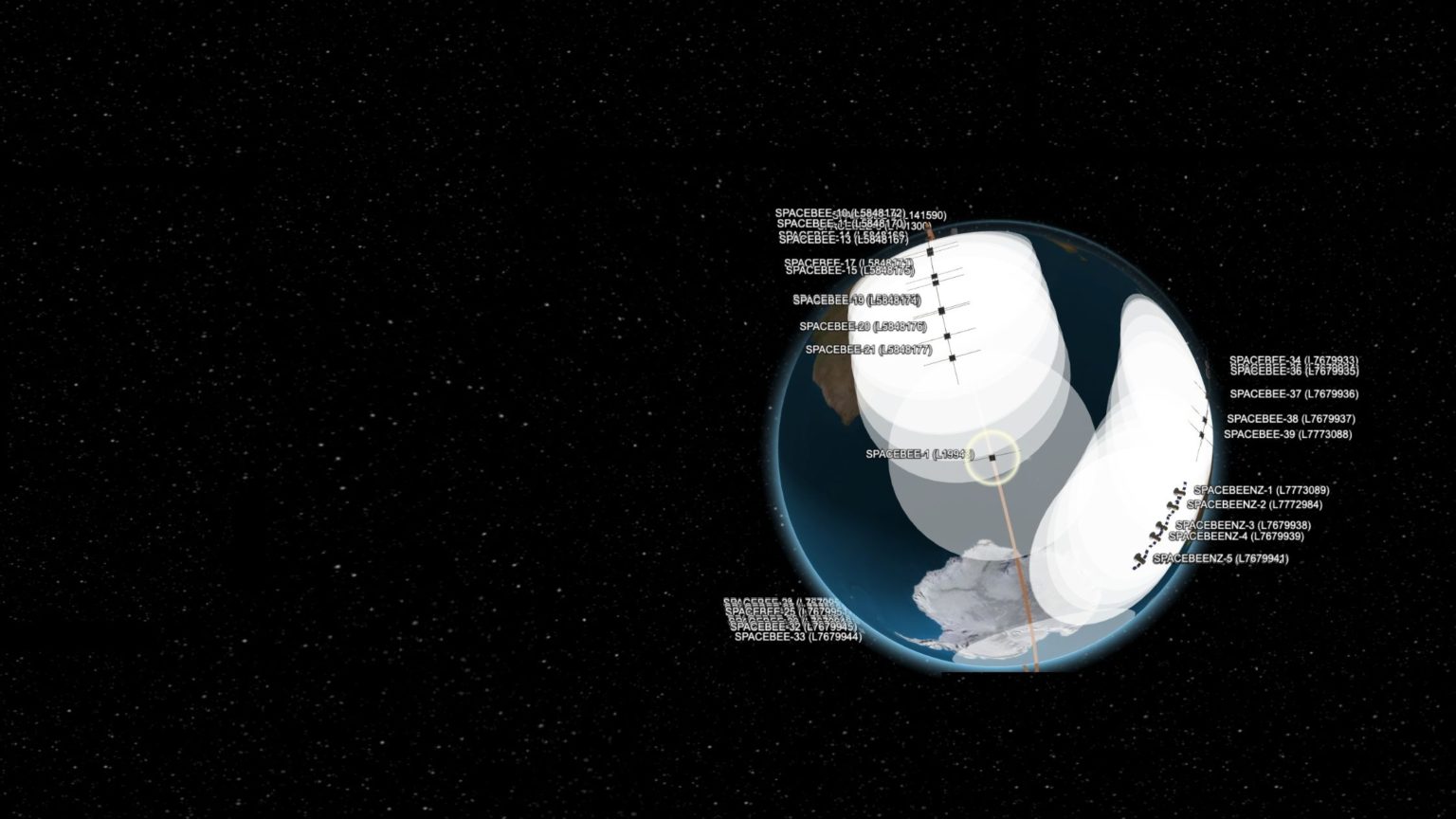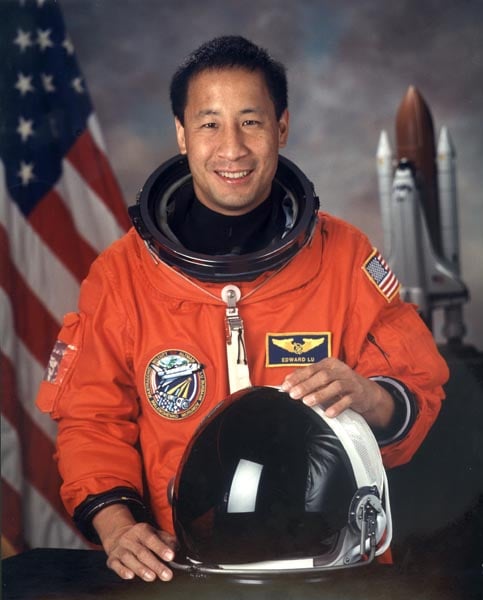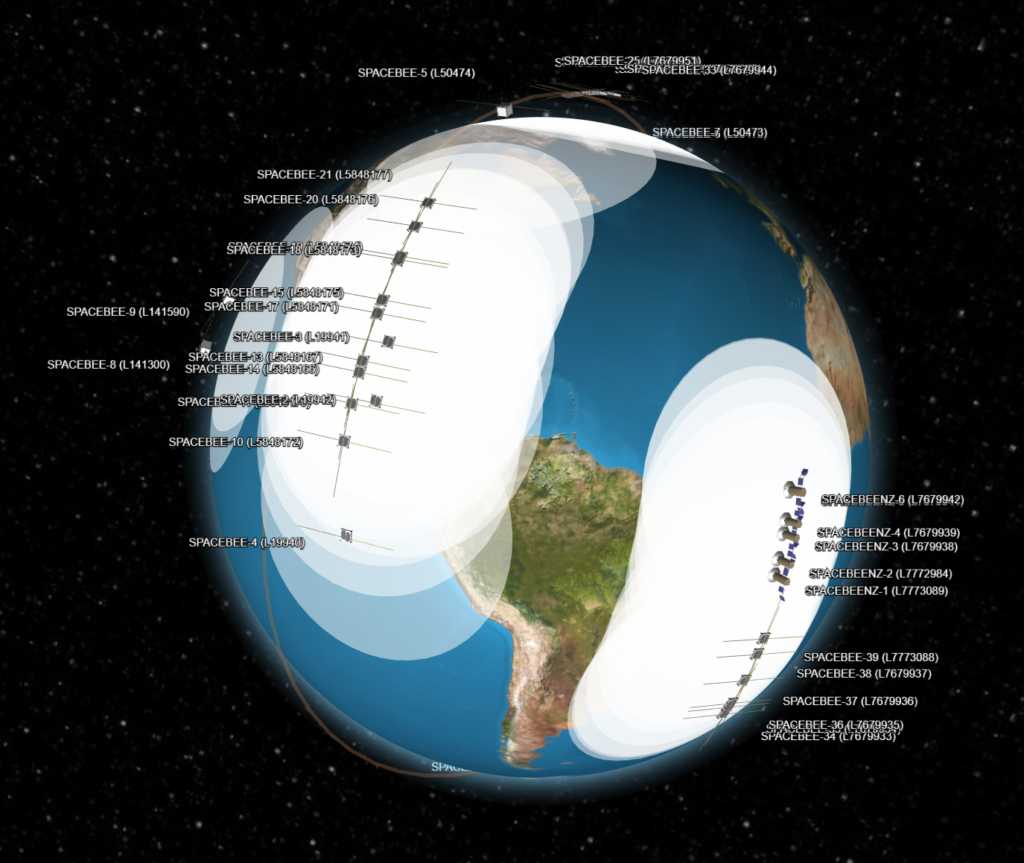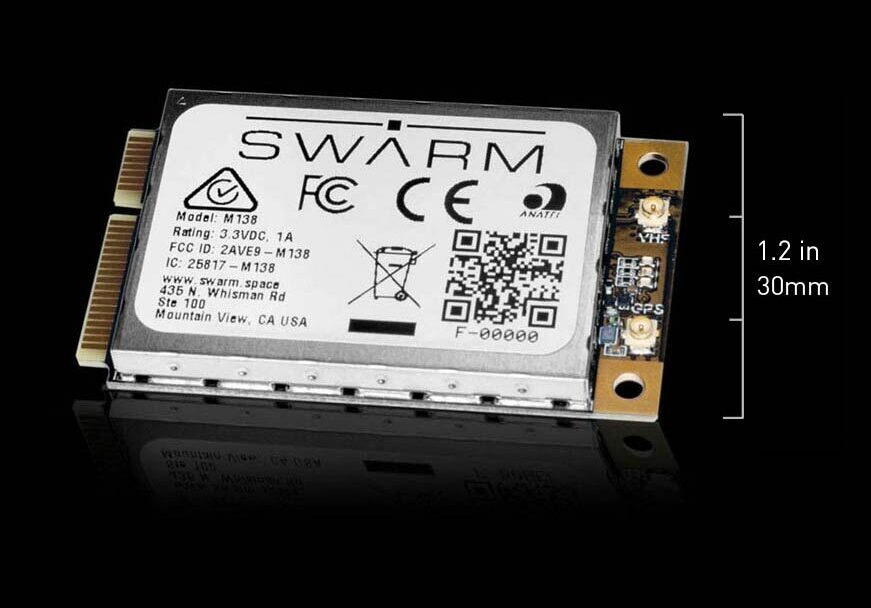
Swarm Chats: Ed Lu, Co-founder of LeoLabs and Former NASA Astronaut
January 14, 2021
If anyone has firsthand experience of the challenges, opportunities, and needs of the space industry, it’s our latest Swarm Chats guest, Dr. Edward Lu. Ed spent 12 years as a NASA astronaut, including two flights on the Space Shuttle and an extended stay on the International Space Station. He then went on to work at Google and Liquid Robotics, before co-founding LeoLabs, a space debris tracking startup, in 2016. Ed is also the co-founder and executive director of the B612 Foundation, a nonprofit focused on planetary science and defense against near-Earth object impacts.

Swarm CEO, Sara Spangelo, first met Ed when she was working on B612 at NASA’s Jet Propulsion Lab (JPL). She recently caught up with Ed about the recent growth of the space economy, how Swarm is positioned in the space and IoT ecosystems, and a piece of advice from a fellow astronaut that’s stuck with him throughout his life and career.
Sara Spangelo: You’ve spent most of your career either directly or indirectly in the space industry. What made you decide to pursue that career path in the first place?
Ed Lu: I was getting my undergrad degree in Electrical Engineering and in my junior year I started taking a bunch of astrophysics classes. I had some great professors teaching me about blackholes and compact objects and neutron stars. Ken Wilson won the Nobel Prize while I was there. I actually fulfilled all the requirements to get a double major but then Cornell said I would need to pay extra to put it on my diploma, so I declined. I went to grad school, spent some time in the world of academic physics, and then I got a job offer to be an astronaut, which I couldn’t turn down. It was a difficult decision, actually, but you know it’s something that isn’t going to come around twice.
SS: It’s a bit humble to say you got a job offer for an astronaut!
EL: It honestly was like that though. You’ve been through that process, so you know. They call you for interviews and it’s a very, very involved process. You meet incredible people and then you go home thinking “There’s no way I’ll make it.” There were 120 finalists and they were going to pick a very small number of mission specialists that year. I went home thinking “That was fun, but it’s over.” It really came as a shock when I got it.
SS: So you weren’t the kid who grew up wanting to be an astronaut?
EL: I loved it and I thought it was incredibly interesting, but I just didn’t realize there was a path to that.
SS: What was one of the most impactful or surprising lessons you learned during that phase of your career?
EL: Another astronaut told me something early on that didn’t really register at the time, but looking back he was completely right. He said you’ll find later on that the people you flew with and the relationships you built will become far more important than what you actually did. When you go in, that’s not your attitude at all. It’s all about what you want to do – as many EVAs as possible, wanting to fly in this or in that… but now, looking back, I remember the people I got to work with. The other stuff falls into the background.
You’ll find later on that the people you flew with and the relationships you built will become far more important than what you actually did… Looking back, I remember the people I got to work with. The other stuff falls into the background.
SS: That seems like a good lesson for a startup, too, or just life in general!
EL: Yeah, I think it’s also a lesson you learn as you get older.
SS: Looking around at the space industry right now, what are you most excited about?
EL: I see incredible growth and maturing of the industry. The annual growth rate in the size of the space economy is about 10% per year, which is on par with China! If you want to know what a 10% annual growth rate looks like, think about China 30 years ago versus today. That’s the power of compound interest.
There are also now many companies specializing in a small section of space, and that means it’s becoming easier to purchase what you need, rather than build it. We saw the same thing happen in the Internet industry 20 years ago. Even small companies can now become big players, and Swarm is a good example of that. I think this trend will continue, if not accelerate. And that means the economy of space will be a substantial part of the overall economy in a decade or so. Within a couple of decades, the space economy will be larger than that of many industrialized countries. This is really the beginning of the movement of our economy and human operations off of Earth.
Within a couple of decades, the space economy will be larger than that of many industrialized countries. This is really the beginning of the movement of our economy and human operations off of Earth.
SS: I totally agree. Companies like Swarm couldn’t have existed even 10 years ago because the services and access to space that we’ve built on top of didn’t exist. And it’s exciting to think about the companies that will build on top of Swarm with their IoT devices and services.
What industry or industries do you think will be most impacted by the availability of low-cost, global satellite connectivity over the next few years?
EL: I wish I knew the answer! There are a ton of new things happening in global logistics and transportation. I also have a feeling that new use cases will pop up as new capabilities pop up. The biggest industry in 20 years may not exist yet today.
SS: I love hearing about all the use cases and applications that I never would’ve thought of for Swarm. Like beekeeping – tracking bees, knowing when hives are a certain weight for optimal harvesting. We have people who want to track whales and bison and cows! And the mobility space, like you say – tracking things like cars and trucks and trains and boats – will be big for us.
How do you think Swarm is differentiated relative to other space or satellite companies?
EL: I’ve been impressed with Swarm’s ability to deliver. You’re putting satellites up and they work and you’re providing services. In the end, that’s what matters. There are a lot of companies that put out press releases and raise money and you never hear from them again. Your ability to actually execute on plans differentiates you and I love watching your progress.
I’ve been impressed with Swarm’s ability to deliver. You’re putting satellites up and they work and you’re providing services. In the end, that’s what matters.
SS: Well speaking of startups that deliver, you co-founded LeoLabs, a company that has really changed the game when it comes to tracking and monitoring objects in low Earth orbit (LEO). What advice would you give to other young startups that are breaking new ground?
EL: My two pieces of advice are be careful who your investors are and be flexible. I almost guarantee that the way you think things are going to turn out is not the way they actually turn out.
SS: Can you give us some backstory on how LeoLabs came about?
EL: It was originally two guys, Dan Ceperley and Mike Nicolls, at SRI. Dan was working on the Allen Telescope Array and Mike was designing and building radar for upper ionospheric research. They had an idea that they could provide a better service for tracking spacecraft and space debris because they were tracking it already. It was noise in the beam of their ionospheric radar, which they would pull out of their dataset. At some point, people started asking if they could pay them for that data they were throwing away. They decided to spin out the company and went to David Liddle, who was on the board of SRI, for advice. He suggested they talk to me.

When Dan and Mike told me about their idea for tracking objects in space, I knew there was a huge need for it. I’ve been onboard the Space Station when we’ve had close calls and knew our tracking was not what we needed. It’s a big issue for operations in space, generally. Mike showed me the accuracy of their data and it was amazing. This was the type of thing Lochkeed would build for a billion dollars. I asked how they were planning to do this as a startup and they said “Come out back, we’ll show you.” They had elements of a radar set up and they were already tracking objects.
That’s when I decided to join, first as an advisor to help them fundraise, and eventually full time as a co-founder. Since then I’ve been splitting my time between the B612 Foundation and LeoLabs – basically two full time jobs.
SS: Thinking back on your career, what is one habit or way of doing things that has made you successful?
EL: I have a bit of a never-give-up attitude, so that helps. If something is really hard and it’s a matter of working hard to get something done, I’m not afraid of that.
SS: If you could moonlight for a week in another career, what would you do?
EL: I’d like another trip to the Space Station! A short trip, not 6 months – I’ve got too much to do here. But I’d take a week off to go back – I’d love that. I’d just look out the window and take pictures and hang out. I’ll clean the toilet if they want me to, or fix the air filters. I still know how to do all that.
_______
This interview has been lightly edited for clarity and length.
Want more? Check out previous Swarm Chats with Rob Meyerson, Former President of Blue Origin, and Jonny Dyer, former Chief Engineer of Skybox Imaging.


